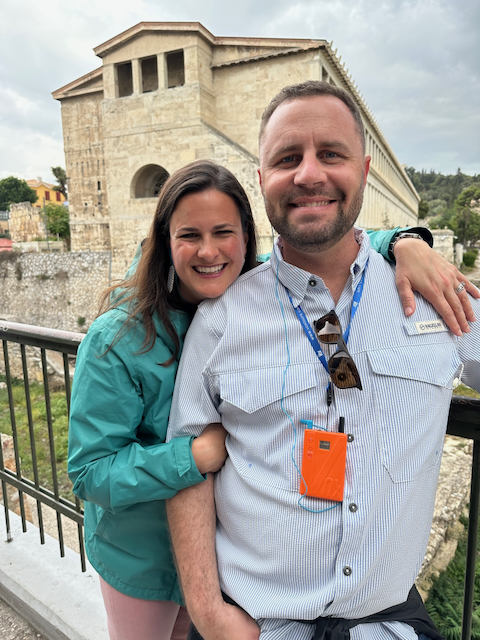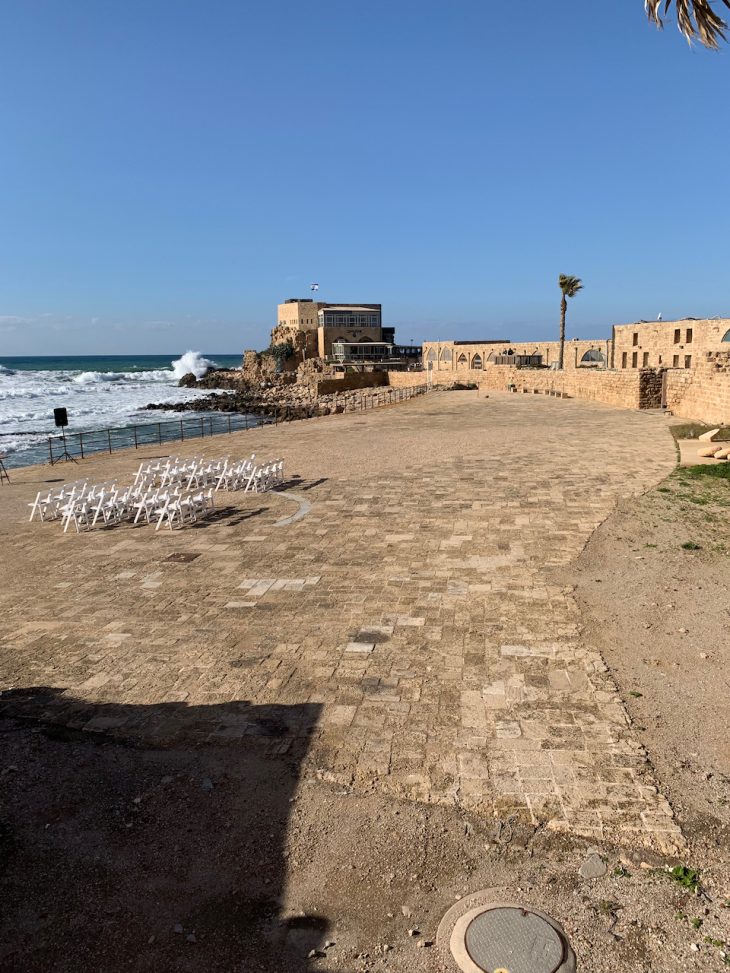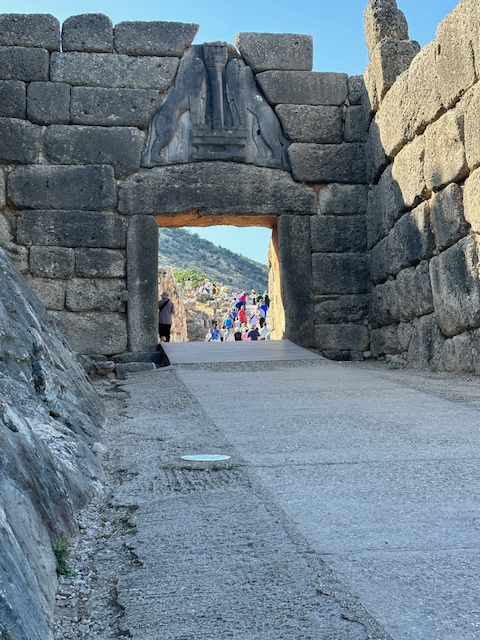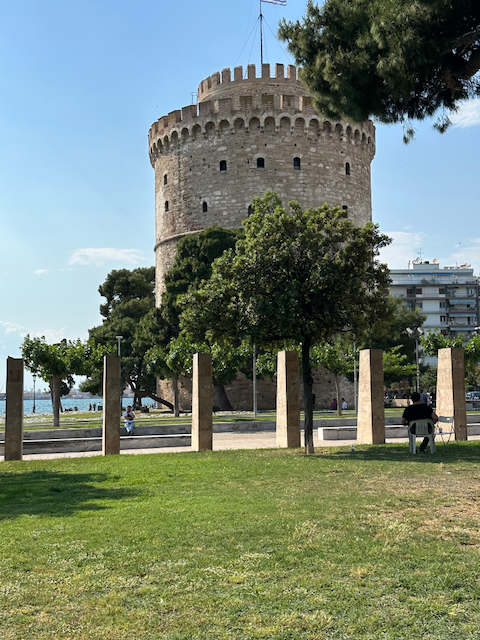Day 1: March 25, 2025
Main Scripture:
Psalm 46:10 (NIV):
“He says, ‘Be still, and know that I am God; I will be exalted among the nations, I will be exalted in the earth.’”
Adoration
Psalm 99:5 (NIV):
“Exalt the Lord our God and worship at his footstool; he is holy.”
Isaiah 12:4 (NIV):
“In that day you will say: ‘Give praise to the Lord, proclaim his name; make known among the nations what he has done, and proclaim that his name is exalted.’”
Reflection: God’s holiness and sovereignty call us to worship.
Prayer: Holy God, I exalt You above all. Your name is worthy of praise across the earth. Amen.
Confession
Psalm 62:8 (NIV):
“Trust in him at all times, you people; pour out your hearts to him, for God is our refuge.”
1 John 1:8 (NIV):
“If we claim to be without sin, we deceive ourselves and the truth is not in us.”
Reflection: Stillness requires trust; we confess our restlessness.
Prayer: Lord, I confess my anxious striving. Forgive me and teach me to trust You fully. Amen.
Thanksgiving
Psalm 118:24 (NIV):
“The Lord has done it this very day; let us rejoice today and be glad.”
1 Chronicles 29:13 (NIV):
“Now, our God, we give you thanks, and praise your glorious name.”
Reflection: God’s presence today is reason to rejoice.
Prayer: Thank You, Father, for this day and Your unchanging glory. I’m grateful for You. Amen.
Supplication
Psalm 37:7 (NIV):
“Be still before the Lord and wait patiently for him; do not fret when people succeed in their ways, when they carry out their wicked schemes.”
Philippians 4:7 (NIV):
“And the peace of God, which transcends all understanding, will guard your hearts and your minds in Christ Jesus.”
Reflection: We seek stillness and peace in His presence.
Prayer: God, grant me stillness and guard my heart with Your peace today. Amen.
Recap & Suggestion: God calls us to stillness. We adored His holiness, confessed restlessness, thanked Him for today, and sought peace. Suggestion: Set aside 5 minutes to sit quietly and know He is God.
Day 2: March 26, 2025
Main Scripture:
Ephesians 2:10 (NIV):
“For we are God’s handiwork, created in Christ Jesus to do good works, which God prepared in advance for us to do.”
Adoration
Psalm 139:14 (NIV):
“I praise you because I am fearfully and wonderfully made; your works are wonderful, I know that full well.”
Revelation 15:3 (NIV):
“And sang the song of God’s servant Moses and of the Lamb: ‘Great and marvelous are your deeds, Lord God Almighty. Just and true are your ways, King of the nations.’”
Reflection: God’s craftsmanship in us and His deeds inspire awe.
Prayer: Lord, I praise You for creating me wonderfully and for Your marvelous deeds. Amen.
Confession
Romans 7:18 (NIV):
“For I know that good itself does not dwell in me, that is, in my sinful nature. For I have the desire to do what is good, but I cannot carry it out.”
Psalm 51:3 (NIV):
“For I know my transgressions, and my sin is always before me.”
Reflection: We confess failing to live out His purpose.
Prayer: Father, I confess my struggles to do good. Forgive me and shape me anew. Amen.
Thanksgiving
Colossians 3:17 (NIV):
“And whatever you do, whether in word or deed, do it all in the name of the Lord Jesus, giving thanks to God the Father through him.”
Psalm 92:1 (NIV):
“It is good to praise the Lord and make music to your name, O Most High.”
Reflection: We thank God for the works He’s prepared for us.
Prayer: Thank You, God, for calling me to good works and for Your guidance. Amen.
Supplication
2 Thessalonians 1:11 (NIV):
“With this in mind, we constantly pray for you, that our God may make you worthy of his calling, and that by his power he may bring to fruition your every desire for goodness and your every deed prompted by faith.”
Psalm 90:17 (NIV):
“May the favor of the Lord our God rest on us; establish the work of our hands for us—yes, establish the work of our hands.”
Reflection: We seek strength to fulfill His purpose.
Prayer: Lord, make me worthy of Your calling and establish my work for You. Amen.
Recap & Suggestion: We are God’s handiwork for good. We adored His creation, confessed shortcomings, thanked Him for purpose, and sought strength. Suggestion: Do one intentional good deed today.
Day 3: March 27, 2025
Main Scripture:
Lamentations 3:22-23 (NIV):
“Because of the Lord’s great love we are not consumed, for his compassions never fail. They are new every morning; great is your faithfulness.”
Adoration
Psalm 36:5 (NIV):
“Your love, Lord, reaches to the heavens, your faithfulness to the skies.”
Revelation 19:11 (NIV):
“I saw heaven standing open and there before me was a white horse, whose rider is called Faithful and True. With justice he judges and wages war.”
Reflection: God’s faithful love is boundless and true.
Prayer: Faithful God, I praise Your love that reaches me daily. You are true. Amen.
Confession
Psalm 38:4 (NIV):
“My guilt has overwhelmed me like a burden too heavy to bear.”
James 4:17 (NIV):
“If anyone, then, knows the good they ought to do and doesn’t do it, it is sin for them.”
Reflection: We confess carrying guilt instead of trusting His mercy.
Prayer: Lord, I confess my guilt and inaction. Lift my burden and forgive me. Amen.
Thanksgiving
Psalm 30:5 (NIV):
“For his anger lasts only a moment, but his favor lasts a lifetime; weeping may stay for the night, but rejoicing comes in the morning.”
1 Thessalonians 5:16-17 (NIV):
“Rejoice always, pray continually.”
Reflection: New mercies each morning spark joy.
Prayer: Thank You, Father, for fresh compassion today. I rejoice in You. Amen.
Supplication
Psalm 5:11 (NIV):
“But let all who take refuge in you be glad; let them ever sing for joy. Spread your protection over them, that those who love your name may rejoice in you.”
Matthew 11:29 (NIV):
“Take my yoke upon you and learn from me, for I am gentle and humble in heart, and you will find rest for your souls.”
Reflection: We seek His daily renewal and rest.
Prayer: God, spread Your protection over me and renew my soul today. Amen.
Recap & Suggestion: God’s mercies are new daily. We adored His faithfulness, confessed guilt, thanked Him for renewal, and sought refuge. Suggestion: Start your morning thanking God for new mercies.
Day 4: March 28, 2025
Main Scripture:
John 15:5 (NIV):
“I am the vine; you are the branches. If you remain in me and I in you, you will bear much fruit; apart from me you can do nothing.”
Adoration
Psalm 104:33 (NIV):
“I will sing to the Lord all my life; I will sing praise to my God as long as I live.”
Isaiah 55:12 (NIV):
“You will go out in joy and be led forth in peace; the mountains and hills will burst into song before you, and all the trees of the field will clap their hands.”
Reflection: Christ’s life in us brings joy and praise.
Prayer: Lord Jesus, I praise You as my vine, my source of life and joy. Amen.
Confession
Galatians 5:24 (NIV):
“Those who belong to Christ Jesus have crucified the flesh with its passions and desires.”
Psalm 66:18 (NIV):
“If I had cherished sin in my heart, the Lord would not have listened.”
Reflection: We confess drifting from His life-giving presence.
Prayer: Father, I confess cherishing my own way. Draw me back to You. Amen.
Thanksgiving
Colossians 1:12 (NIV):
“And giving joyful thanks to the Father, who has qualified you to share in the inheritance of his holy people in the kingdom of light.”
Psalm 16:11 (NIV):
“You make known to me the path of life; you will fill me with joy in your presence, with eternal pleasures at your right hand.”
Reflection: Remaining in Him yields fruit and joy.
Prayer: Thank You, Lord, for qualifying me and filling me with Your joy. Amen.
Supplication
John 17:23 (NIV):
“I in them and you in me—so that they may be brought to complete unity. Then the world will know that you sent me and have loved them even as you have loved me.”
Psalm 80:7 (NIV):
“Restore us, God Almighty; make your face shine on us, that we may be saved.”
Reflection: We seek to abide and bear fruit.
Prayer: Jesus, keep me in You and help me bear fruit for Your glory. Amen.
Recap & Suggestion: Christ is our vine. We adored His life, confessed drift, thanked Him for joy, and sought to abide. Suggestion: Reflect on one way to stay connected to Him today.
Day 5: March 29, 2025
Main Scripture:
Romans 12:2 (NIV):
“Do not conform to the pattern of this world, but be transformed by the renewing of your mind. Then you will be able to test and approve what God’s will is—his good, pleasing and perfect will.”
Adoration
Psalm 111:2-3 (NIV):
“Great are the works of the Lord; they are pondered by all who delight in them. Glorious and majestic are his deeds, and his righteousness endures forever.”
Colossians 1:16 (NIV):
“For in him all things were created: things in heaven and on earth, visible and invisible, whether thrones or powers or rulers or authorities; all things have been created through him and for him.”
Reflection: God’s works and will are majestic.
Prayer: Lord, I praise Your glorious deeds and perfect will. You are majestic. Amen.
Confession
James 1:14-15 (NIV):
“But each person is tempted when they are dragged away by their own evil desire and enticed. Then, after desire has conceived, it gives birth to sin; and sin, when it is full-grown, gives birth to death.”
Psalm 119:11 (NIV):
“I have hidden your word in my heart that I might not sin against you.”
Reflection: We confess conforming to the world.
Prayer: Father, I confess following my desires over Your will. Renew my mind. Amen.
Thanksgiving
Ephesians 5:20 (NIV):
“Always giving thanks to God the Father for everything, in the name of our Lord Jesus Christ.”
Psalm 28:6 (NIV):
“Praise be to the Lord, for he has heard my cry for mercy.”
Reflection: Transformation brings gratitude for His mercy.
Prayer: Thank You, God, for hearing me and transforming me. I praise You. Amen.
Supplication
Philippians 1:6 (NIV):
“Being confident of this, that he who began a good work in you will carry it on to completion until the day of Christ Jesus.”
Psalm 25:5 (NIV):
“Guide me in your truth and teach me, for you are God my Savior, and my hope is in you all day long.”
Reflection: We seek renewal to discern His will.
Prayer: Lord, complete Your work in me and guide me in Your truth. Amen.
Recap & Suggestion: Transformation renews us. We adored His works, confessed conformity, thanked Him for mercy, and sought guidance. Suggestion: Memorize Romans 12:2 to renew your mind.
Day 6: March 30, 2025
Main Scripture:
Hebrews 13:8 (NIV):
“Jesus Christ is the same yesterday and today and forever.”
Adoration
Psalm 102:25-27 (NIV):
“In the beginning you laid the foundations of the earth, and the heavens are the work of your hands. They will perish, but you remain; they will all wear out like a garment… but you remain the same, and your years will never end.”
Malachi 3:6 (NIV):
“I the Lord do not change. So you, the descendants of Jacob, are not destroyed.”
Reflection: Christ’s unchanging nature is our rock.
Prayer: Eternal Jesus, I praise You for Your steadfastness. You never change. Amen.
Confession
Psalm 73:26 (NIV):
“My flesh and my heart may fail, but God is the strength of my heart and my portion forever.”
Hebrews 10:23 (NIV):
“Let us hold unswervingly to the hope we profess, for he who promised is faithful.”
Reflection: We confess wavering in faith.
Prayer: Lord, I confess my faltering trust. Strengthen my hope in You. Amen.
Thanksgiving
Psalm 136:26 (NIV):
“Give thanks to the God of heaven. His love endures forever.”
1 Corinthians 15:57 (NIV):
“But thanks be to God! He gives us the victory through our Lord Jesus Christ.”
Reflection: His constancy gives us victory and thanks.
Prayer: Thank You, Jesus, for Your enduring love and victory. I’m grateful. Amen.
Supplication
Isaiah 26:3 (NIV):
“You will keep in perfect peace those whose minds are steadfast, because they trust in you.”
Jude 1:24 (NIV):
“To him who is able to keep you from stumbling and to present you before his glorious presence without fault and with great joy.”
Reflection: We seek peace in His unchanging care.
Prayer: Lord, keep me steadfast and present me faultless. Grant me peace. Amen.
Recap & Suggestion: Jesus is unchanging. We adored His eternity, confessed wavering, thanked Him for victory, and sought peace. Suggestion: Reflect on one way He’s been constant in your life.
Day 7: March 31, 2025
Main Scripture:
Psalm 34:18 (NIV):
“The Lord is close to the brokenhearted and saves those who are crushed in spirit.”
Adoration
Psalm 147:3 (NIV):
“He heals the brokenhearted and binds up their wounds.”
Isaiah 57:15 (NIV):
“For this is what the high and exalted One says—he who lives forever, whose name is holy: ‘I live in a high and holy place, but also with the one who is contrite and lowly in spirit, to revive the spirit of the lowly and to revive the heart of the contrite.’”
Reflection: God’s nearness to the hurting is holy.
Prayer: Healing Lord, I praise You for Your nearness and care. You revive me. Amen.
Confession
Psalm 42:5 (NIV):
“Why, my soul, are you downcast? Why so disturbed within me? Put your hope in God, for I will yet praise him, my Savior and my God.”
1 Peter 5:6 (NIV):
“Humble yourselves, therefore, under God’s mighty hand, that he may lift you up in due time.”
Reflection: We confess despair over hope.
Prayer: Father, I confess my downcast spirit. Lift me with Your hope. Amen.
Thanksgiving
Psalm 9:9-10 (NIV):
“The Lord is a refuge for the oppressed, a stronghold in times of trouble. Those who know your name trust in you, for you, Lord, have never forsaken those who seek you.”
2 Corinthians 1:3-4 (NIV):
“Praise be to the God and Father of our Lord Jesus Christ, the Father of compassion and the God of all comfort, who comforts us in all our troubles, so that we can comfort those in any trouble with the comfort we ourselves receive from God.”
Reflection: His comfort fuels our thanks.
Prayer: Thank You, God, for comforting me and never forsaking me. Amen.
Supplication
Psalm 55:1-2 (NIV):
“Listen to my prayer, O God, do not ignore my plea; hear me and answer me. My thoughts trouble me and I am distraught.”
John 16:20 (NIV):
“Very truly I tell you, you will weep and mourn while the world rejoices. You will grieve, but your grief will turn to joy.”
Reflection: We seek His saving nearness.
Prayer: Lord, be close to my brokenness and turn my grief to joy. Amen.
Recap & Suggestion: God is near the broken. We adored His healing, confessed despair, thanked Him for comfort, and sought joy. Suggestion: Comfort someone hurting today.
Day 8: April 1, 2025
Main Scripture:
James 1:17 (NIV):
“Every good and perfect gift is from above, coming down from the Father of the heavenly lights, who does not change like shifting shadows.”
Adoration
Psalm 145:9 (NIV):
“The Lord is good to all; he has compassion on all he has made.”
Revelation 4:8 (NIV):
“Each of the four living creatures had six wings and was covered with eyes all around, even under its wings. Day and night they never stop saying: ‘Holy, holy, holy is the Lord God Almighty, who was, and is, and is to come.’”
Reflection: God’s goodness and holiness shine eternally.
Prayer: Holy Father, I praise Your goodness and unchanging light. Amen.
Confession
Romans 1:21 (NIV):
“For although they knew God, they neither glorified him as God nor gave thanks to him, but their thinking became futile and their foolish hearts were darkened.”
Psalm 106:1 (NIV):
“Praise the Lord. Give thanks to the Lord, for he is good; his love endures forever.”
Reflection: We confess ingratitude for His gifts.
Prayer: Lord, I confess overlooking Your gifts. Forgive my ungrateful heart. Amen.
Thanksgiving
Psalm 107:8-9 (NIV):
“Let them give thanks to the Lord for his unfailing love and his wonderful deeds for mankind, for he satisfies the thirsty and fills the hungry with good things.”
1 Thessalonians 1:2 (NIV):
“We always thank God for all of you and continually mention you in our prayers.”
Reflection: Every gift reflects His love.
Prayer: Thank You, Father, for Your good gifts and unfailing love. Amen.
Supplication
Matthew 7:11 (NIV):
“If you, then, though you are evil, know how to give good gifts to your children, how much more will your Father in heaven give good gifts to those who ask him!”
Psalm 20:4 (NIV):
“May he give you the desire of your heart and make all your plans succeed.”
Reflection: We seek His generous provision.
Prayer: God, grant me Your good gifts and align my desires with Yours. Amen.
Recap & Suggestion: All good comes from God. We adored His goodness, confessed ingratitude, thanked Him for gifts, and sought provision. Suggestion: List three gifts from God today.
Day 9: April 2, 2025
Main Scripture:
Isaiah 41:10 (NIV):
“So do not fear, for I am with you; do not be dismayed, for I am your God. I will strengthen you and help you; I will uphold you with my righteous right hand.”
Adoration
Psalm 89:8 (NIV):
“Who is like you, Lord God Almighty? You, Lord, are mighty, and your faithfulness surrounds you.”
Exodus 15:11 (NIV):
“Who among the gods is like you, Lord? Who is like you—majestic in holiness, awesome in glory, working wonders?”
Reflection: God’s might and presence awe us.
Prayer: Mighty Lord, I praise Your holiness and strength. You are unmatched. Amen.
Confession
Psalm 56:4 (NIV):
“In God, whose word I praise—in God I trust and am not afraid. What can mere mortals do to me?”
Mark 4:40 (NIV):
“He said to his disciples, ‘Why are you so afraid? Do you still have no faith?’”
Reflection: We confess fear over faith.
Prayer: Father, I confess my fearfulness. Increase my trust in You. Amen.
Thanksgiving
Psalm 27:1 (NIV):
“The Lord is my light and my salvation—whom shall I fear? The Lord is the stronghold of my life—of whom shall I be afraid?”
2 Timothy 1:7 (NIV):
“For the Spirit God gave us does not make us timid, but gives us power, love and self-discipline.”
Reflection: His strength banishes fear.
Prayer: Thank You, God, for being my light and strength. I’m fearless in You. Amen.
Supplication
Psalm 138:8 (NIV):
“The Lord will vindicate me; your love, Lord, endures forever—do not abandon the works of your hands.”
Joshua 1:9 (NIV):
“Have I not commanded you? Be strong and courageous. Do not be afraid; do not be discouraged, for the Lord your God will be with you wherever you go.”
Reflection: We seek His upholding hand.
Prayer: Lord, strengthen and uphold me today. Be with those who fear. Amen.
Recap & Suggestion: God banishes fear. We adored His might, confessed fear, thanked Him for strength, and sought courage. Suggestion: Speak Isaiah 41:10 aloud when afraid.
Day 10: April 3, 2025
Main Scripture:
Philippians 4:19 (NIV):
“And my God will meet all your needs according to the riches of his glory in Christ Jesus.”
Adoration
Psalm 145:16 (NIV):
“You open your hand and satisfy the desires of every living thing.”
Revelation 5:12 (NIV):
“In a loud voice they were saying: ‘Worthy is the Lamb, who was slain, to receive power and wealth and wisdom and strength and honor and glory and praise!’”
Reflection: God’s provision and worthiness amaze us.
Prayer: Worthy Lamb, I praise You for Your rich provision and glory. Amen.
Confession
Matthew 6:31-32 (NIV):
“So do not worry, saying, ‘What shall we eat?’ or ‘What shall we drink?’ or ‘What shall we wear?’ For the pagans run after all these things, and your heavenly Father knows that you need them.”
Psalm 39:5 (NIV):
“You have made my days a mere handbreadth; the span of my years is as nothing before you. Everyone’s life is but a breath.”
Reflection: We confess worrying about needs.
Prayer: Lord, I confess my worry over needs. Forgive me and teach me trust. Amen.
Thanksgiving
Psalm 23:5 (NIV):
“You prepare a table before me in the presence of my enemies. You anoint my head with oil; my cup overflows.”
Ephesians 1:3 (NIV):
“Praise be to the God and Father of our Lord Jesus Christ, who has blessed us in the heavenly realms with every spiritual blessing in Christ.”
Reflection: His abundance overflows in us.
Prayer: Thank You, Father, for meeting my needs and blessing me richly. Amen.
Supplication
Psalm 84:11 (NIV):
“For the Lord God is a sun and shield; the Lord bestows favor and honor; no good thing does he withhold from those whose walk is blameless.”
Matthew 6:11 (NIV):
“Give us today our daily bread.”
Reflection: We seek His daily provision.
Prayer: God, meet my needs today and provide for those in lack. Amen.
Recap & Suggestion: God meets all needs. We adored His riches, confessed worry, thanked Him for abundance, and sought provision. Suggestion: Pray for one specific need today.











